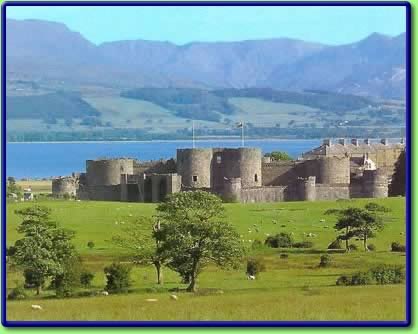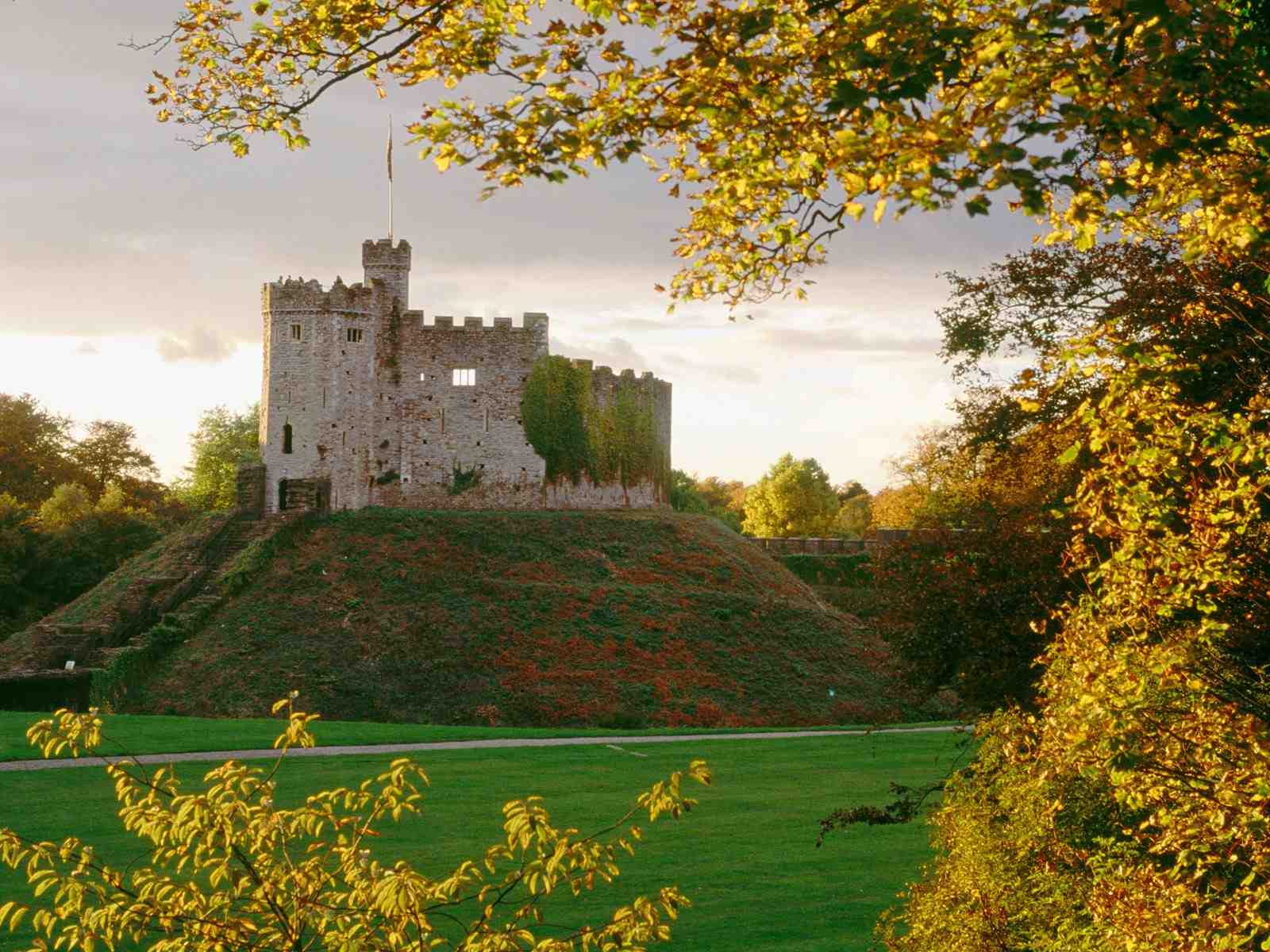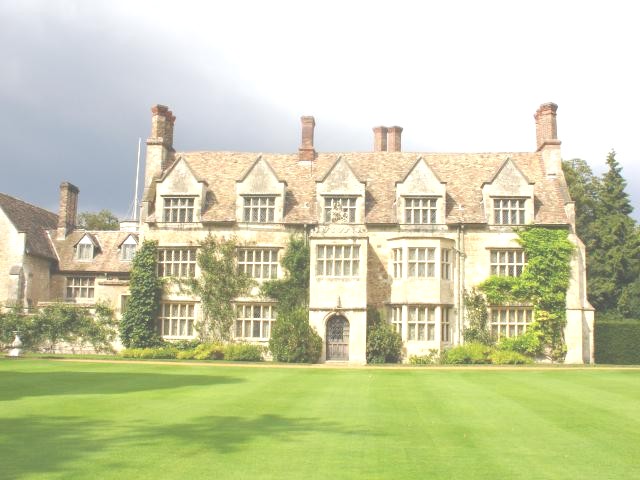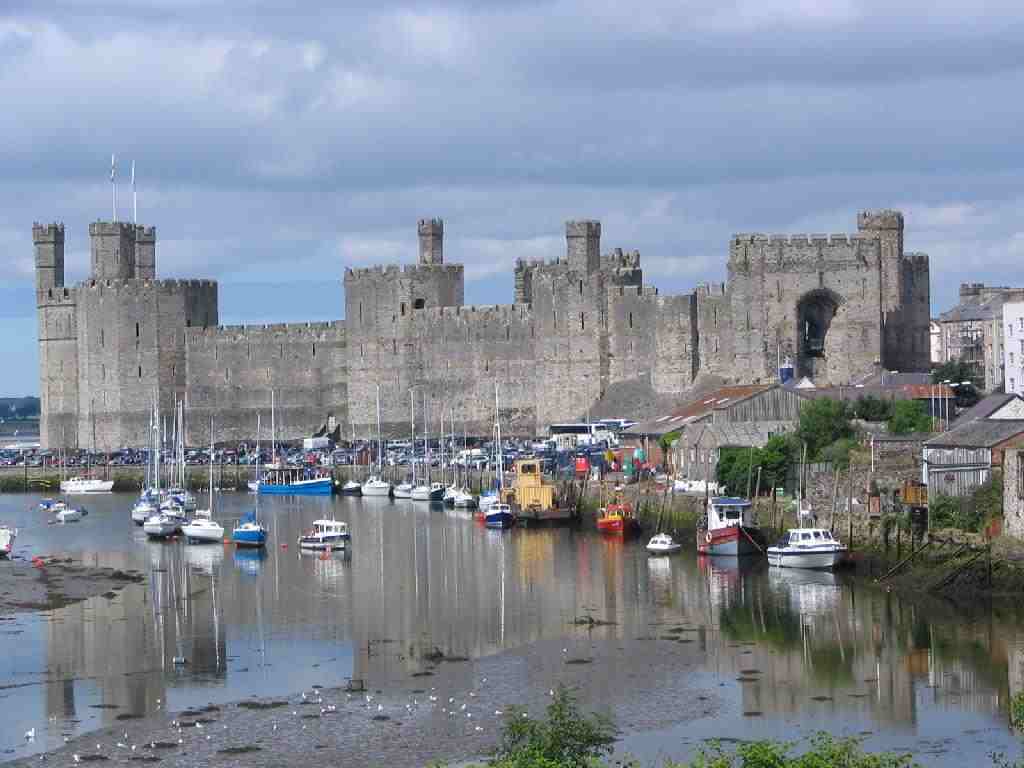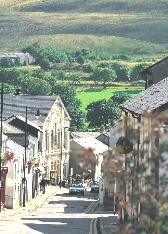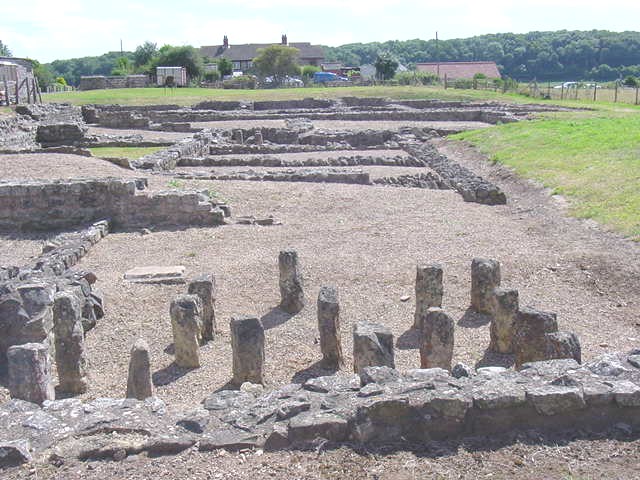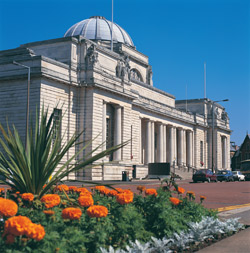The Theosophical Society,
Cardiff Lodge, 206 Newport Road, Cardiff CF24 – 1DL
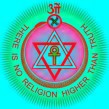
The Writings of Annie Besant
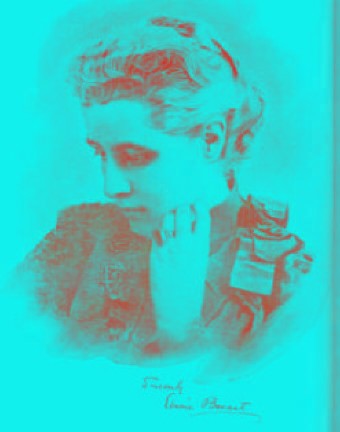
(1847 -1933)
Theosophy
From a Lecture circa 1889
By
Annie
Besant
In dealing with a great theme within narrow limits one
has always to make a choice of evils: one must either substantiate each point,
buttress it up with arguments, and thus fail to give any roughly complete idea
of the whole; or one must make an outline of the whole, leaving out the proofs
which bring conviction of the truth of the teaching. As the main object of this
paper is to place before the average man or woman an idea of Theosophy as a
whole, I elect to take the inconvenience of the latter alternative, and use the
expository instead of the controversial method. Those who are sufficiently
interested in the subject to desire further knowledge can easily pass on into
the investigation of evidences, evidences that are within the reach of all who
have patience, power of thought, and courage.
We, who are Theosophists, allege that there exists a
great body of doctrines, philosophical, scientific, and ethical, which forms
the basis of, and includes all that is accurate in, the philosophies, sciences,
and religions of the ancient and modern worlds. This body of doctrine is a
philosophy and a science more than a religion in the ordinary sense of the
word, for it does not impose dogmas as necessary to be believed under any kind
of supernatural penalties, as do the various Churches of the world. It is
indeed a religion, if religion be the binding of life by a sublime ideal; but
it puts forward its teachings as capable of demonstration, not on authority
which it is blasphemy to challenge or deny.
That some great body of doctrine did exist in
antiquity, and was transmitted from generation to generation, is patent to any
investigator. It was this which was taught in the Mysteries, of which Dr.
Warburton wrote: "The wisest and best men in the Pagan world are unanimous
in this, that the Mysteries were instituted pure, and proposed the noblest ends
by the worthiest means." To speak of the Initiates is to speak of the
greatest men of old: in their ranks we find Plato and Pythagoras, Euclid and Democritus,
Thales and Solon, Apollonius and Iamblichus. In the Mysteries unveiled they
learned their wisdom, and gave out to the world such fragments of it as their
oath allowed. But those fragments have fed the world for centuries, and even
yet the learned of the modern West sit at the feet of these elder sons of
wisdom. Among the teachers of the early Christian Church some of these men were
found; they held Christianity in its esoteric meaning, and used exoteric dogmas
merely as veils to cover the hidden truth. "Unto you it is given,"
said Jesus, "to know the mystery of the kingdom of God, but unto them that
are without all these things are done in parables" (Mark iv. II). Clemens
Alexandrinus and Origen both recognise the esoteric nature of the underlying
truths of Christianity, as before them did Paul. In West as in East exoteric
religions were but the popular representations of the Secret Wisdom. But with
the triumph of ecclesiasticism, the Secret Wisdom drew back further and further
into the shade, until its very existence slowly faded from the minds of men.
Now and then one of its disciples appeared in Christendom, and gave to the
world some "discovery" which started thought on some new and fruitful
line; thus Paracelsus, with his "discovery" of hydrogen, his magnetic
treatment for the cure of disease, and his many hints at secrets of nature not
even yet worked out. Trace through the Middle Ages, too often by the lurid
light of flames blazing round a human body, the path along which the pioneers
of science toiled, and it will be found that the "magicians" and the
"wizards" were the finger-posts that marked the way.
Passing strange is it to note how the minds of men
have changed in their aspect to the guardians of the Hidden Wisdom. Of old, in their
passionate gratitude, men regarded them as well nigh divine, thinking no
honours too great to pay to those who had won the right of entrance into the
temple of the Unveiled Truth. In the Middle Ages, when men, having turned from
the light, saw devils everywhere in the darkness, the Adepts of the Right Hand
Path were dreaded as those of the Left, and wherever new knowledge appeared and
obscure regions of nature were made visible, cries of terror and wrath rent the
air, and men paid their benefactors with torture and with death. In our own
time, secure in the completeness of our knowledge, certain that Our philosophy
embraces all things possible in heaven and earth, we neither honour the
teachers as gods nor denounce them as devils: with a shrug of contempt and a
sniff of derision we turn from them, as they come to us with outstretched hands
full of priceless gifts, and we mutter, "Frauds, charlatans!"
entrenched as we are in our modern conceit that only the nineteenth century is
wise.
Theosophy claims to be this Secret Wisdom, this great
body of doctrine, and it alleges that this precious deposit, enriched with the
results of the investigations of generations of seers and sages, verified by
countless experiments, is to-day, as of old, in the hands of a mighty
Brotherhood, variously spoken of as Adepts, Masters, Mahatmas, Brothers, who
are living men, evolved further than average humanity, who work ever for the
service of their race with a perfect and selfless devotion, holding their high
powers in trust for the common good, content to be without recognition, having
power beyond all desires of the personal self.
The claim is a lofty one, but it can be substantiated
by evidence. I leave it as a mere statement of the position taken up. Coming to
the Western world to-day, Theosophy speaks far more openly than it has ever
done before, owing to the simple fact that with the evolution of the race man
has become more and more fitted to be the recipient of such knowledge, so that
what would once be taught to only a small minority may now find a wider field.
Some of the doctrine is now thrown broadcast, so that all who can receive it
may: but the keys which unlock the mysteries are still committed but to few
hands, hands too well tried to tremble under their weight, or to let them slip
from either weakness or treachery. As of old so now, the Secret Wisdom is
guarded, not by the arbitrary consent or refusal of the teachers to impart
instruction, but by the capacity of the student to understand and to
assimilate.
Theosophy postulates the existence of an eternal
Principle, known only through its effects. No words can describe It, for words
imply discriminations, and This is ALL. We murmur, Absolute, Infinite,
Unconditioned, - but the words mean naught. SAT, the Wise speak of: BE-NESS,
not even Being nor Existence. Only as the Manifested becomes can language be
used with meaning; but the appearance of the Manifested implies the
Un-manifested, for the Manifested is transitory and mutable, and there must be
something that eternally endures. This Eternal must be postulated, else whence
the existences around us? It must contain within Itself That which is the
essence of the germ of all possibilities, all potencies: space is the only
conception that can even faintly mirror It without preposterous distortion, but
silence least offends in these high regions where the wings of thought beat
faintly and lips can only falter, not pronounce.
The universe is, in Theosophy, the manifestation of an
aspect of SAT. Rhythmically succeed each other periods of activity and periods
of repose, periods of manifestation and periods of absorption, the expiration
and inspiration of the Great Breath, in the figurative and most expressive
phraseology of the East. The outbreathing is the manifested worlds; the
inbreathing terminates the period of activity. The Root-Substance
differentiates into "spirit-matter," whereof the universe, visible
and invisible, is built up, evolving into seven stages, or planes, of
manifestation, each denser than its predecessor; the substance is the same in
all, but the degrees of its density differ. So the chemist may have in his
receiver water held invisible: he may condense it into a faint mist-cloud,
condense it further into vapour, further yet into liquid, further yet into
solid; throughout he has the same chemical compound, though he changes its
condition. Now it is well to remember that the chemist is dealing with facts in
nature, and that his results may therefore throw light on natural methods,
working in larger fields; we may at least learn from such an illustration to
clarify our conceptions of the past course of evolution. Thus, from the
Theosophical standpoint, "spirit" and "matter" are
essentially one, and the universe one living whole from centre to circumference,
not a molecule in it that is not instinct with life. Hence the difficulty that
scientists have always found in defining "life." Every definition
they have made has broken down as excluding some phenomena that they were
compelled to recognise as those of life. Sentiency, in our meaning of the word
there may not be, say in the mineral; but is it therefore "dead"? Its
particles cohere, they vibrate, they attract and they repel: what are these but
manifestations of that living energy which rolls the worlds in their courses,
flashes from continent to continent, thrills from root to summit of the plant,
pulses in the animal, reasons in the man? One Life and therefore One Law
everywhere, not a Chaos of warring atoms but a Kosmos of ordered growth. Death
itself is but a change in life-manifestation, life which has outworn one
garment and, rending it in pieces, clothes itself anew. When the thoughtless
say, "He is dead," the wise know that the countless "lives"
of which the human body is built up have become charged with more energy than
the bodily structure can stand, that the strain has become too great, that
disruption must ensue. But "death" is only transformation not
destruction, and every molecule has pure life-essence at its core with the material
garment it has woven round itself of its own substance for action on the
objective plane.
Each of the seven Kosmic planes of manifestation is
marked off by its own characteristics; in the first pure "spirit,"
the primary emanation of the ONE, subtlest, rarest, of all manifestations,
incognisable even by the highest of Adepts save as present in its vehicle, the
Spiritual Soul: without form, without intelligence, as we use the word - these
matters are too high, "I cannot attain unto them." Next comes the
plane of Mind, of loftiest spiritual intelligence, where first entity as entity
can be postulated; individualism begins, the Ego first appears. Rare and subtle
is matter on that plane, yet form is there possible, for the individual implies
the presence of limitation, the separation of the "I" from the
"not I." Fourth, still densifying, comes the plane of animal passions
and desires, actual forms on their own plane. Then, fifthly, that of the vivid
animating life-principle, as, absorbed in forms. Sixthly, the astral plane, in
which matter is but slightly rarer than with ourselves. Seventhly, the plane
familiar to all of us, that of the objective universe. Let us delay for a
moment over this question of "planes," for on the understanding of it
hinges our grasp of the philosophical aspect of Theosophy. A plane may be
defined as a state, marked off by clear characteristics; it must not be thought
of as a place, as though the universe were made up of shells one within the
other like the coats of an onion. The conception is metaphysical, not physical,
the consciousness acting on each plane in fashion appropriate to each. Thus a
man may pass from the plane of the objective in which his consciousness is
generally acting, on to the other planes: he may pass into the astral in sleep,
under mesmerism, under the influence of various drugs; his consciousness may be
removed from the physical plane, his body passive, his brain inert; an electric
light leaves his eyes unaffected, a gong beaten at his ear cannot rouse the
organ of hearing; the organs through which his consciousness normally acts in
the physical universe are all useless, for the consciousness that uses them is
transferred to another plane. But he can see, hear, understand, on the astral
plane, see sights invisible to physical eyes, hear sounds inaudible to physical
ears. Not real? What is "real"? Some people confine the real to the
tangible and only believe in the existence of a thing that can knock them down
with a lesion to prove the striking. But an emotion can slay as swiftly as an
arrow; a thought can cure with as much certainty as a drug. All the mightiest
forces are those which are invisible on this plane, visible though they be to
senses subtler than our own. Take the case of a soldier who in the mad passion
of slaughter, the lust for blood, is wounded in the onward charge, and knows
not the wounding till his passions cool and the fight is over; his
consciousness during the fight is transferred to the fourth plane, that of the
emotions and passions, and it is not till it returns from that to the plane of
the physical body that pain is felt. So again will a great philosopher, his
consciousness rising to the plane of intelligence, become wholly abstracted -
as we well say - from the physical plane; brooding over some deep problem, he
forgets all physical wants, all bodily appetites, and becomes concentrated
entirely on the thought-plane, the fifth, in Theosophic parlance.
Now the consciousness of man can thus pass from plane
to plane because he is himself the universe in miniature, and is built up
himself of these seven "principles," as they are sometimes called, or
better, is himself a differentiation of consciousness on seven planes. It may
be well, at this stage, to give to these states of consciousness the names by
which they are known in Theosophical literature, for although some people
shrink from names that are unfamiliar, there are, after all, only seven of
them, and the use of them enables one to avoid the continual repetition of
clumsy and inexact descriptive sentences. To Macrocosm and Microcosm alike the
names apply, although they are most often found in relation to man. The Spirit
in man is named Atma, cognisable only in its vehicle Buddhi, the Spiritual
Soul; these are the reflexions in man or the highest planes in the universe.
The Spiritual Intelligence is Manas, the Ego in man, the immortal entity, the
link between Atma-Buddhi and the temporary personality. Below these come in
order Kama, the emotional and passional nature; Prana, the animating life-principle
of the personality; Linga Sarira, the "astral body," the double of
the physical, but formed of the somewhat more ethereal "astral"
matter; lastly, Sthula Sarira, the physical body. These seven states are
grouped under two heads: Atma-Buddhi-Manas make up the trinity in man,
imperishable, immortal, the "pilgrim" that passes through countless
lives, the individual, the True Man. Kama, Prana, Linga Sarira, and Sthula
Sarira form the quaternary, the transitory part of the human being, the person,
which perishes gradually, onwards from the death of the physical body. This
disintegrates, the molecules of physical, astral, kamic, matter finding all new
forms into which they are builded, and the more quickly they are all resolved
into their elements the better for all concerned. The consciousness of the
normal man resides chiefly on the physical, astral, and kamic planes, with the
lower portion of the Manasic. In flashes of genius, in loftiest aspirations, he
is touched for a moment by the light from the higher Manasic regions, but this
comes - only comes - to the few, and to these but in rare moments of sublime
abstraction. Happy they who even thus catch a glimpse of the Divine Angoeides,
the immortal Ego within them. To none born of women, save the Masters, is it at
the present time given by the law of evolution to rise to the Atmic-Buddhic
planes in man; thither the race will climb millenniums hence, but at present it
boots not to speak thereof.
Each of these planes has its own organisms, its own
phenomena, the laws of its own manifestation; and each can be investigated as
exactly, as scientifically, as experimentally, as the objective plane with
which we are most familiar. All that is necessary is that we should use
appropriate organs of sensation, and appropriate methods of investigation. On
the objective plane we are already able to obey this rule; we do not use our
eyes to listen to sounds, and then deny that sounds exist because our eyes
cannot hear them; nor do we take in hand the microscope to examine a distant
nebula, and then say that the nebula is not there because the field of the
microscope is dark. A very slight knowledge of our own objective universe will
place us in the right mental attitude towards the unknown. Why do we see, hear,
taste, feel? Merely because our physical body is capable of receiving certain
impressions from without by way of the avenues of sense. But there are myriads
of phenomena, as "real" as those we familiarly cognise, which are to
us non-existent, for the very simple reason that our organs of sensation are
not adapted to receive them. Take the air-vibrations which, translated into
terms of consciousness, we call sound. If an instrument that emits successive
notes be sounded in a room with a dozen people, as the notes become shriller
and shriller one person after another drops out of the circle of auditors, and
is wrapped in silence while still a note is sounding, audible to others there;
at last a pipe speaks that no one hears, and though all the air be throbbing
with its vibrations, silence complete reigns in the room. The vibration-waves
have become so short and rapid that the mechanism of the human ear cannot
vibrate in unison with them; the objective phenomenon is there, but the
subjective does not respond to it, so that for man it does not exist. Similar
illustrations might be drawn in connection with every sense, and it is surely
not too much to claim that if on the plane to which our bodies are correlated,
phenomena constantly escape our dull perceptions, men shall not found on their
ignorance of other planes the absolute denial of their existence. Ignorance can
only justify silence, suspension of judgment; it cannot justify denial.
Knowledge is necessary for rational belief, but the verifiable assertions of
those who claim such knowledge are surely more weighty than the mere denial of
ignorance. As in all other branches of scientific inquiry, investigation should
precede the formation of opinion, and those who would understand and experiment
in the occult regions of nature must, by long, steady, and patient courage,
become occultists. Only informed opinion is of any weight in discussion, and in
occult science, as in every other, the mere chatter and vituperation of
uninformed criticism do not count. The occultist can be no more moved thereby
than Professor Huxley by the assertions of a fourth-standard schoolboy. Those
who have time, ability, and courage, can develop in themselves the senses and
the capacities which enable the consciousness to come into touch with the higher
planes, senses and capacities already evolved and fully at work in some, and to
be in the course of ages the common inheritance of every child of man. All the
so-called phenomena which have been so much spoken of in connection with H. P.
Blavatsky were but the simple outcome of her highly evolved nature, her control
over the forces of the objective plane being exercised as naturally and
carelessly as the electrician utilises his knowledge to bring about results
that would seem miraculous to the African savage.
They were but sparks flung outwards by the fire that
ever steadily burned within, as difficult for her to smother as for us to live
down to a level of civilization far below our own. I know that the exercise of
these powers often arouses in the minds of people convinced of their reality an
eager desire to possess them, but only those who will pay the price can attain
possession. And the first instalment of that price is the absolute renunciation
of all that men prize and long for here on earth; complete self-abnegation;
perfect devotion to the service of others; destruction of all personal desires;
detachment from all earthly things. Such is the first step on the Right-Hand
Path, and until that step is taken it is idle to talk of further progress along
that thorny road. Occultism wears no crown save that of thorns, and its sceptre
of command is the seven-knotted wand, in which each knot marks the payment of a
price from which the normal man or woman would turn shuddering away. It is
because of this that it is not worth while to deal with this aspect of
Theosophy at any length. What does concern us is the general plan of evolution,
the "pilgrimage" of the Ego, of the individual, encased in the outer
shell of the personality.
The evolution of man consists in the acquirement by
the Ego of experience, and the gradual moulding of the physical nature into a
form which can readily respond to every prompting of the spirit within. This
evolution is carried on by the repeated incarnation of the Ego, over-shadowed
by the spirit, in successive personalities, through which it lives and acts on
the objective plane. The task before it when it starts on the wheel of life on
this earth, during the present cycle, is to acquire and assimilate all
experience, and so to energize and sublimate the objective form of man that it
may become a fit instrument and dwelling for the spirit; the complete
assimilation of the Ego with the spirit, of Manas with Atma-Buddhi, being the
final goal of the long and painful pilgrimage. It is obvious that such work
cannot be accomplished in one lifetime, or in a few. For such gigantic task
countless lives must be required, each life but one step in the long climbing
upward. Each life should garner some fresh experience, should add some new capacity
or strengthen some budding force; thus is builded up through numberless
generations the Perfect Man. Hence the doctrine of Re-incarnation is the very
core and essence of Theosophy, and according to the hold this belief has on
life, so will be the grasp of the learner on all Theosophic truth.
The term Re-incarnation - expressive as it is of the
encasing of the Ego in the man of flesh - is very often misunderstood. It
implies the indwelling of the Ego in many successive personalities, but it does
not imply the possibility of its incarnation in the brute. In many places and
at many times this travesty of the doctrine has prevailed, and it has been
taught that the re-incarnating Ego may, as penalty for the transgressions of
the human personality with which it has been linked, be flung into the vortex
of the brute world and inform some lower animal. But this idea is against
Theosophical teaching, according to which the Manasic entity can inhabit only
man; it is, indeed, the indwelling of this entity which is the distinction
between the man and the brute, a distinction which is ever preserved.
There is no doctrine in the range of philosophy which
throws so much light on the tangled web of human life as does this doctrine of
Re-incarnation. Take, for instance, the immense difference in capacity and in
character found within the limits of the human race. In all plants and in all
animals the characteristic qualities of a species may vary, but within
comparatively narrow limits; so also with man, so far as his outer form, his
instincts, and his animal passions, are concerned. They vary of course, as
those of the brute vary, but their broad outline remains the same. But when we
come to study the differences of mental capacity and moral character, we are
struck with the vast distances that separate man from man. Between the savage,
counting five upon his fingers, and the Newton who calculates the movements of
a planet and predicts its course, how wide and deep a gulf as to intellect!
between a barbarian dancing gleefully round the bleeding body of his foe, as he
mangles and torments the living tissues, and the Howard who gives his life to
save and aid the lowest fallen of his people, how vast the difference as to
character! And this leaves out of account those living men, who are as far
ahead of Newton and of Howard as these are above the least evolved of our race.
Whence the great divergencies, unparalleled among the rest of the organisms on
our globe? Why is man alone so diverse? Theosophy points in answer to the
re-incarnation of the Ego, and sees in the differing stages of experience
reached by that Ego the explanation of the differing intellectual and moral
capacities of the personality. "Baby Egos" - as I have heard H. P.
Blavatsky call them with reference to their lack of human experience - inform
the little-evolved humanity, while those who dwell in the more highly developed
races are those who have already garnered much rich harvest of past experience
and have thereby become capable of more rapid growth.
The Ego that has completed a span of earth-life, and
has shaken off the worn-out personality that it informed, passes into a
subjective state of rest, ere re-assuming "the burden of the flesh."
Thus it remains for a period varying in length according to the stage of
evolution it has reached. When that period is exhausted, it is drawn back to
earth-life, to such environment as is suitable for the growing of the seed it
has sown in its past. As surely as hydrogen and oxygen rush into union under
certain conditions of temperature and of pressure, is the Ego drawn by
irresistible affinity to the circumstances that yield opening for its further
evolution. Suitable environment, suitable parents to provide suitable physical
body, such are some of the conditions that guide the place and time of
re-incarnation. The desire for sentient life, the desire for objective
expression, that desire which set the universe a-building, impels the Ego to
seek renewed manifestation; it is drawn to the surroundings which its own past
has made necessary for its further progress. Nor is this all. I have spoken of
the fact that each plane has its own organisms, its own laws; the Manasic plane
is the plane on which thoughts take forms, objective to all who are able to
perceive on that plane. All the experiences of a life, gathered up after death,
and the essence, as it were, extracted, have their appropriate thought-forms on
the Manasic plane; as the time for the reincarnation of the Ego approaches,
these with previous unexhausted similar thought-forms pass to the astral plane,
clothe themselves in astral matter, and mould the astral body into form
suitable for the working out of their own natural results. Into this astral
body the physical is builded, molecule by molecule, the astral mould thus, in
its turn, moulding the physical. Through the physical body, including its
brain, the re-incarnated Ego has to work for the term of that incarnation, and
thus it dwells in a tabernacle of its own construction, the inevitable
resultant of its own past earth-lives.
To how many of the problems that vex thinkers to-day
by the apparent hopelessness of their solution, is an explanation suggested if,
for the moment, Re-incarnation be accepted even as a possible hypothesis.
Within the limits of a family hereditary physical likeness, often joined by
startling mental and moral divergencies; twins, alike as far as regards
heredity and pre-natal environment, yet showing in some cases strong
resemblance, in others no less dissimilarity. Cases of precocity, where the
infant brain manifests the rarest capacities precedent to all instruction.
Cases of rapid gain of knowledge, where the knowledge seems to be remembered
rather than acquired, recognised rather than learned. Cases of intuition,
startling in their swiftness and lucidity, insight clear and rapid into
complicated problems without guide or teacher to show the way. All these and
many another similar puzzles receive light from the idea of the persistent
individual that informs each personality, and it is a well-known principle in
seeking for some general law underlying a mass of apparently unrelated
phenomena that the hypothesis which explains most, brings most into accord with
an intelligible sequence, is the one most likely to repay further investigation.
To those, again, who shrink from the idea that the
Universe is one vast embodiment of injustice, the doctrine of Re-incarnation
comes as a mental relief from well-nigh unbearable strain. When we see the
eager mind imprisoned in an inefficient body; when we note the differences of
mental and moral capacity that make all achievement easy to one, impossible to
others; when we come across what seems to be undeserved suffering,
disadvantageous circumstances; when we feel longings after heights unattainable
for lack of strength; then the knowledge that we create our own character, that
we have made our own strength or our own weakness, that we are not the sport of
an arbitrary God or of a soulless Destiny, but are verily and indeed the
creators of ourselves and of our lot in life - this knowledge comes to us as a
support and an inspiration, giving energy to improve and courage to endure.
This immutable law of cause and effect is spoken of as
Karma (action) in Theosophy. Each action - using the word to include all forms
of activity, mental, moral, physical - is a cause and must work out its full
effect. Effect as regards the past, it is cause as regards the future, and
under this sway of Karmic law moves the whole life of man as of all worlds.
Every debt incurred must be duly paid in this or in some other life, and as the
wheel of life turns round it brings with it the fruit of every seed that we
have sown. Re-incarnation under Karmic law, such is the message of Theosophy to
a Christendom which relies on a vicarous atonement and a swift escape to
Paradise when the grave closes on the dead. Re-incarnation under Karmic law,
until the fruit of every experience has been gathered, every blunder rectified,
every fault eradicated; until compassion has been made perfect, strength
unbreakable, tenderness complete, self-abnegation the law of life, renunciation
for others the natural and joyous impulse of the whole nature.
But how, it may be asked, can you urge to effort, or
press responsibility, if you regard every action as one link in an infrangible
chain of cause and effect? The answer lies in the sevenfold nature of man, in
the action of the higher on the lower. The freewill of man on this plane is lodged
in the Manasic entity, which acts on his lower nature. Absolute freewill is
there none, save in the Unconditioned. When manifestation begins, the Universal
Will becomes bound and limited by the laws of Its own manifestation, by the
fashion of the expression It has chosen as its temporary vehicle. Conditioned,
it is limited by the conditions It has imposed on Itself, manifesting under
garb of the universe in which It wills to body Itself forth. On each plane Its
expression is limited by the capacities of Its embodiments. Now the Manasic
entity in its own sphere is the reflexion, the image, of the Universal Will in
Kosmos. So far as the personality is concerned, the promptings, the impulses,
from the Manasic plane are spontaneous, have every mark of freedom, and if we
start from the lowest plane of objective nature, we shall see how relative
freedom is possible. If a man be loaded with chains, his muscles will be
limited in their power of movement. They are constrained m their expression by
the dead weight of iron pressing upon them; yet the muscular force is there,
although denied outward expression, and the iron cannot prevent the straining
of the fibres against the force used in their subdual. Again, some strong
emotion, some powerful impulse from the Kama-Manasic plane, may hold rigid the
muscles under lesion that would make every fibre contract and pull the limb
away from the knife. The muscles are compelled from the plane above them, the
personal will being free to hold them rigid or leave them to their natural
reaction against injury. From the standpoint of the muscles the personal will
is free, and it cannot be controlled save as to its material expression on the
material plane. When the Manasic entity sends impulse downwards to the lower
nature with which it is linked, conflict arises between the animal desire and
the human will. Its interferences appear to the personality as spontaneous,
free, uncaused by any actions on the lower plane; and so they are, for the
causes that work on it are of the higher not the lower planes. The animal
passions and desires may limit its effective expression on their own plane, but
they cannot either prompt or prevent its impulses; man's true freedom is found
when his lower nature puts itself into line with the higher, and gives free
course to the will of the higher Ego. And so with that Ego itself: able to act
freely on the planes below it, it finds its best freedom as channel of the
Universal Will from which it springs, the conscious willing harmony with the
All of which it is part. An effect cannot be altered when the cause has
appeared; but that effect is itself to be a cause, and here the will can act.
Suppose a great sorrow falls on some shrinking human heart; the effect is
there, cannot be avoided, but its future result as cause may be one of two
things; Kama may rebel, the whole personal nature may rise in passionate
revolt, and so, warring against the Higher Will, the new cause generated will
be of disharmony, bearing in its womb new evil to be born in days to come. But
Kama may range itself obediently with Karmic action it may patiently accept the
pain, joyfully unite itself to the Higher Will, and so make the effect as cause
to be pregnant with future good.
Remains but space for one last word on that which is Theosophy
in action - the Universal Brotherhood of Man. This teaching is the inevitable
outcome of the doctrines of the One Universal Spirit common to all, humanity,
Re-incarnation and Karma. Every distinction of race and sex, of class and
creed, fades away before the essential unity of the indwelling spirit, before
the countless incarnations under all forms of outward garmenture, making the
experience of prince and beggar part of the training of all in turn. Here is to
be found the motive-spring of action - love for all mankind. In each child of
man the true Theosophist recognises a brother to be loved and served, and in
the Theosophical Society, Theosophists, under the direction of the Masters,
have formed a nucleus for such Brother- hood of Humanity, and have made its
recognition the only obligation binding on all who enter. Amid class hatreds
and warring sects it raises this sublime banner of human love, a continual
reminder that essentially all humanity is one, and that the goal to which we
travel is the same for all. Without this recognition of Brotherhood all science
is useless and all religion is hypocrisy. Deeper than all diversity, mightier
than all animosity, is that Holy Spirit of Love. The Self of each is the Higher
Self of all, and that bond is one which nothing in all worlds can avail to
break. That which raises one raises all; that which degrades one degrades all.
The sin and crime of our race are our sin and crime, and only as we save our
brethren can we save ourselves. One in our inception, one in our goal, we must
needs be one in our progress; the "curse of separateness" that is on
us it is ours to remove, and Theosophy alike as religion and philosophy will be
a failure save as it is the embodiment of the life of Love.
History
of the Theosophical Society
Theosophical Society Cardiff
Lodge
Cardiff Theosophical Archive
The Theosophical Society,
Cardiff Lodge, 206 Newport Road, Cardiff CF24 – 1DL
Helena Petrovna Blavatsky 1831 – 1891
The Founder of Modern Theosophy
Index of Articles by
By
H P Blavatsky
Is the Desire to Live Selfish?
Ancient Magic in Modern Science
Precepts Compiled by H P Blavatsky
Obras Por H P Blavatsky
En Espanol
Articles about the Life of H P Blavatsky
Nature is infinite in space and
time -- boundless and eternal, unfathomable and ineffable. The all-pervading
essence of infinite nature can be called space, consciousness, life, substance,
force, energy, divinity -- all of which are fundamentally one.
2) The finite and the infinite
Nature is a unity in
diversity, one in essence, manifold in form. The infinite whole is composed of
an infinite number of finite wholes -- the relatively stable and autonomous
things (natural systems or artefacts) that we observe around us. Every natural
system is not only a conscious, living, substantial entity, but is
consciousness-life-substance, of a particular range of density and form.
Infinite nature is an abstraction, not an entity; it therefore does not act or
change and has no attributes. The finite, concrete systems of which it is
composed, on the other hand, move and change, act and interact, and possess
attributes. They are composite, inhomogeneous, and ultimately transient.
3)
Vibration/worlds within worlds
The one essence manifests not
only in infinitely varied forms, and on infinitely varied scales, but also in
infinitely varying degrees of spirituality and substantiality, comprising an
infinite spectrum of vibration or density. There is therefore an endless series
of interpenetrating, interacting worlds within worlds, systems within systems.
The energy-substances of
higher planes or subplanes (a plane being a particular range of vibration) are
relatively more homogeneous and less differentiated than those of lower planes
or subplanes.
Just as boundless space is
comprised of endless finite units of space, so eternal duration is comprised of
endless finite units of time. Space is the infinite totality of worlds within
worlds, but appears predominantly empty because only a tiny fraction of the
energy-substances composing it are perceptible and tangible to an entity at any
particular moment. Time is a concept we use to quantify the rate at which
events occur; it is a function of
change and motion, and
presupposes a succession of cause and effect. Every entity is extended in space
and changes 'in time'.
All change (of position,
substance, or form) is the result of causes; there is no such thing as absolute
chance. Nothing can happen for no reason at all for nothing exists in
isolation; everything is part of an intricate web of causal interconnections and
interactions. The keynote of nature is harmony: every action is automatically
followed by an equal and opposite reaction, which sooner or later rebounds upon
the originator of the initial act. Thus, all our thoughts and deeds will
eventually bring us 'fortune' or 'misfortune' according to the degree to which
they were harmonious or disharmonious. In the long term, perfect justice
prevails in nature.
Because nature is
fundamentally one, and the same basic habits and structural, geometric, and
evolutionary principles apply throughout, there are correspondences between
microcosm and macrocosm. The principle of analogy -- as above, so below -- is a
vital tool in our efforts to understand reality.
All finite systems and their
attributes are relative. For any entity, energy-substances vibrating within the
same range of frequencies as its outer body are 'physical' matter, and finer
grades of substance are what we call energy, force, thought, desire, mind,
spirit, consciousness, but these are just as material to entities on the
corresponding planes as our physical world is to us. Distance and time units
are also relative: an atom is a solar system on its own scale, reembodying perhaps
millions of times in what for us is one second, and our whole galaxy may be a
molecule in some supercosmic entity, for which a million of our years is just a
second. The range of scale is infinite: matter-consciousness is both infinitely
divisible and infinitely aggregative.
All natural systems consist
of smaller systems and form part of larger systems. Hierarchies extend both
'horizontally' (on the same plane) and 'vertically' or inwardly (to higher and
lower planes). On the horizontal level, subatomic particles form atoms, which
combine into molecules, which arrange themselves into cells, which form tissues
and organs, which form part of organisms, which form part of ecosystems, which
form part of planets, solar systems, galaxies, etc. The constitution of worlds
and of the organisms that inhabit them form 'vertical' hierarchies, and can be
divided into several interpenetrating layers or elements, from physical-astral
to psychomental to spiritual-divine, each of which can be further divided.
The human constitution can be
divided up in several different ways: e.g. into a trinity of body, soul, and
spirit; or into 7 'principles' -- a lower quaternary consisting of physical
body, astral model-body, life-energy, and lower thoughts and desires, and an
upper triad consisting of higher mind (reincarnating ego), spiritual intuition,
and inner god. A planet or star can be regarded as a 'chain' of 12 globes, existing
on 7 planes, each globe comprising several subplanes.
The highest part of every
multilevelled organism or hierarchy is its spiritual summit or 'absolute',
meaning a collective entity or 'deity' which is relatively perfected in
relation to the hierarchy in question. But the most 'spiritual' pole of one
hierarchy is the most 'material' pole of the next, superior hierarchy, just as
the lowest pole of one hierarchy is the highest pole of the one below.
Each level of a hierarchical
system exercises a formative and organizing influence on the lower levels
(through the patterns and prototypes stored up from past cycles of activity),
while the lower levels in turn react upon the higher. A system is therefore
formed and organized mainly from within outwards, from the inner levels of its
constitution, which are relatively more enduring and developed than the outer
levels. This inner guidance is sometimes active and selfconscious, as in our
acts of free will (constrained, however, by karmic tendencies from the past),
and sometimes it is automatic and passive, giving rise to our own automatic
bodily functions and habitual and instinctual behavior, and to the orderly,
lawlike operations of nature in general. The 'laws' of nature are therefore the
habits of the various grades of conscious entities that compose reality,
ranging from higher intelligences (collectively
forming the universal mind) to elemental nature-forces.
10) Consciousness and its vehicles
The core of every entity --
whether atom, human, planet, or star -- is a monad, a unit of consciousness-life-substance,
which acts through a series of more material vehicles or bodies. The monad or
self in which the consciousness of a particular organism is focused is animated
by higher monads and expresses itself through a series of lesser monads, each
of which is the nucleus of one of the lower vehicles of the entity in question.
The following monads can be distinguished: the divine or galactic monad, the
spiritual or solar monad, the higher human or planetary-chain monad, the lower
human or globe monad, and the animal, vital-astral, and physical monads. At our
present stage of evolution, we are essentially the lower human monad, and our
task is to raise our consciousness from the animal-human to the spiritual-human
level of it.
Evolution means the
unfolding, the bringing into active manifestation, of latent powers and
faculties 'involved' in a previous cycle of evolution. It is the building of
ever fitter vehicles for the expression of the mental and spiritual powers of
the monad. The more sophisticated the lower vehicles of an entity, the greater
their ability to express the powers locked up in the higher levels of its
constitution. Thus all things are alive and conscious, but the degree of
manifest life and consciousness is extremely varied.
Evolution results from the
interplay of inner impulses and environmental stimuli. Ever building on and
modifying the patterns of the past, nature is infinitely creative.
12) Cyclic evolution/re-embodiment
Cyclic evolution is a
fundamental habit of nature. A period of evolutionary activity is followed by a
period of rest. All natural systems evolve through re-embodiment. Entities are
born from a seed or nucleus remaining from the previous evolutionary cycle of
the monad, develop to maturity, grow old, and pass away, only to re-embody in a
new form after a period of rest. Each new embodiment is the product of past
karma and present choices.
Nothing comes from nothing:
matter and energy can be neither created nor destroyed, but only transformed.
Everything evolves from preexisting material. The growth of the body of an
organism is initiated on inner planes, and involves the transformation of higher
energy-substances into lower, more material ones, together with the attraction
of matter from the environment.
When an organism has
exhausted the store of vital energy with which it is born, the coordinating
force of the indwelling monad is withdrawn, and the organism 'dies', i.e. falls
apart as a unit, and its constituent components go their separate ways. The
lower vehicles decompose on their respective subplanes, while, in the case of
humans, the reincarnating ego enters a dreamlike state of rest and assimilates
the experiences of the previous incarnation. When the time comes for the next
embodiment, the reincarnating ego clothes itself in many of the same atoms of
different grades that it had used previously, bearing the appropriate karmic
impress. The same basic processes of birth, death,
and rebirth apply to all entities, from atoms to humans to stars.
14)
Evolution and involution of worlds
Worlds or spheres, such as
planets and stars, are composed of, and provide the field for the evolution of,
10 kingdoms -- 3 elemental kingdoms, mineral, plant, animal, and human
kingdoms, and 3 spiritual kingdoms. The impulse for a new manifestation of a
world issues from its spiritual summit or hierarch, from which emanate a series
of steadily denser globes or planes; the One expands into the many. During the
first half of the evolutionary cycle (the arc of descent) the energy-substances
of each plane materialize or condense, while during the second half (the arc of
ascent) the trend is towards dematerialization or etherealization, as globes
and entities are reabsorbed into the spiritual hierarch for a period of nirvanic
rest. The descending arc is characterized by the evolution of matter and
involution of spirit, while the ascending arc is characterized by the evolution
of spirit and involution of matter.
In each grand cycle of
evolution, comprising many planetary embodiments, a monad begins as an
unselfconsciousness god-spark, embodies in every kingdom of nature for the
purpose of gaining experience and unfolding its inherent faculties, and ends
the cycle as a self conscious god. Elementals ('baby monads') have no free
choice, but automatically act in harmony with one another and the rest of
nature. In each successive kingdom differentiation and individuality increase,
and reach their peak in the human kingdom with the attainment of
selfconsciousness and a large measure of free will.
In the human kingdom in
particular, self-directed evolution comes into its own. There is no superior
power granting privileges or handing out favours; we evolve according to our
karmic merits and demerits. As we progress through the spiritual kingdoms we
become increasingly at one again with nature, and willingly 'sacrifice' our
circumscribed selfconscious freedoms (especially the freedom to 'do our own
thing') in order to work in peace and harmony with the greater whole of which
we form an integral part. The highest gods of one hierarchy or world-system
begin as elementals in the next. The matter of any plane is composed of
aggregated, crystallized monads in their nirvanic sleep, and the spiritual and
divine entities embodied as planets and stars are the electrons and atomic
nuclei -- the material building blocks -- of worlds on even larger scales.
Evolution is without beginning and without end, an endless adventure through
the fields of infinitude, in which there are always new worlds of experience in
which to become selfconscious masters of life.
There is no absolute
separateness in nature. All things are made of the same essence, have the same
spiritual-divine potential, and are interlinked by magnetic ties of sympathy.
It is impossible to realize our full potential, unless we recognize the
spiritual unity of all living beings and make universal brotherhood the keynote
of our lives.
Hey Look! Theosophy in
Cardiff
Cardiff Theosophical Society
in Wales
Cardiff, Wales, UK. CF24 – 1DL
_________________
Wales Picture Gallery
The
Great Orme
Llandudno
Promenade
Great
Orme Tramway
New
Radnor
Blaenavon
Ironworks
Llandrindod
Wells
Cardiff Theosophical Society
in Wales
Cardiff, Wales, UK. CF24 – 1DL
Presteign
Railway
Caerwent Roman Ruins
Denbigh
Nefyn
Penisarwaen
Cardiff Theosophical Society
in Wales
Cardiff, Wales, UK. CF24 – 1DL

